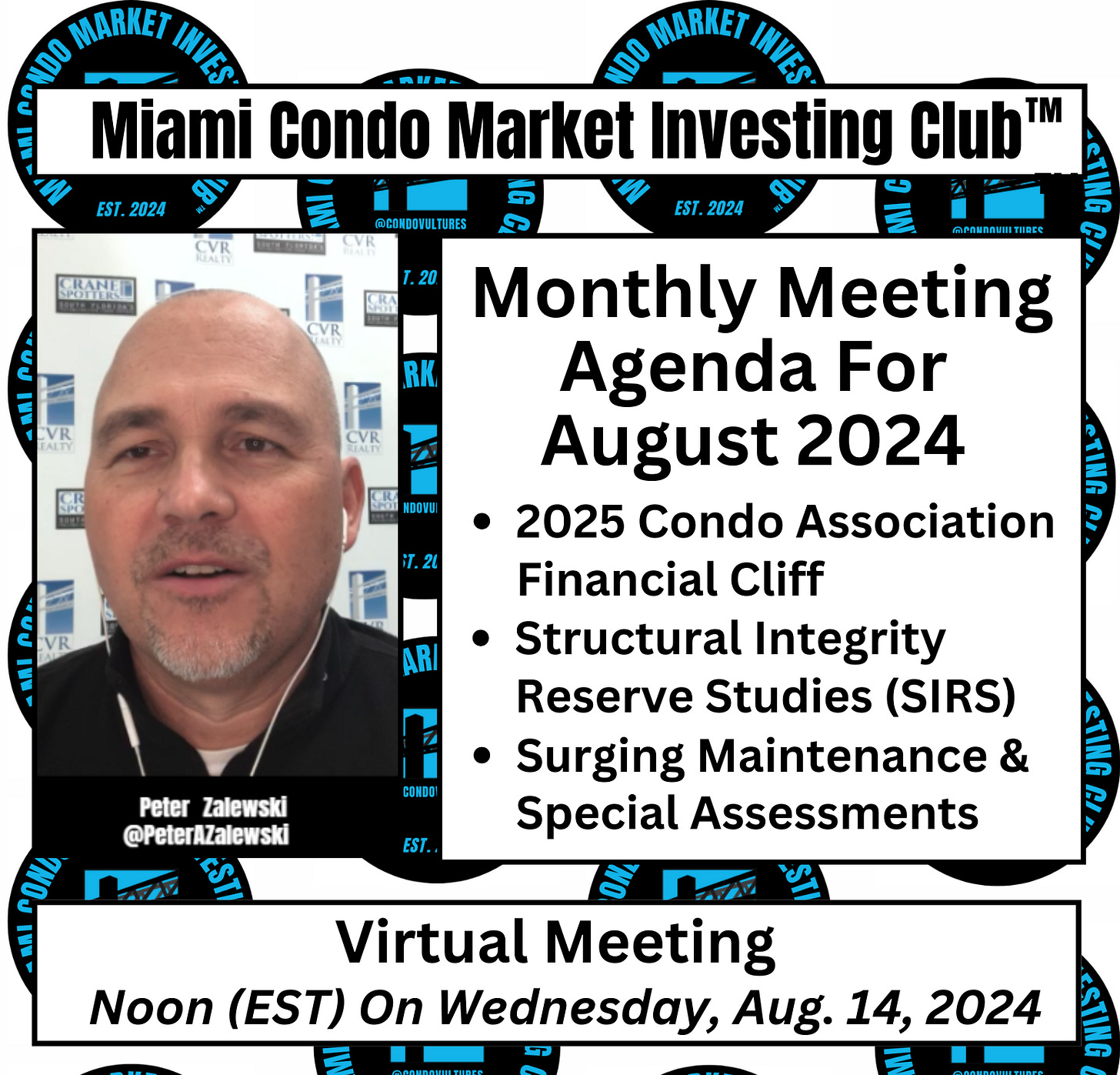SIRS: The Acronym Every Condo Buyer, Owner Needs To Know In Florida
Following the Surfside condo collapse, the Structural Integrity Reserve Study (SIRS) is poised to dominate all Florida condo association discussions and debates in 2025.

If you live in a Florida condo and don’t know what a SIRS is, consider this your introduction to an acronym that will likely dominate all future association discussions and debates about maintenance fees and special assessments for the foreseeable future.
The SIRS acronym stands for Structural Integrity Reserve Study.
In basic terms, it is a two-part evaluation conducted by experts - such as engineers, architects and reserve specialists - to determine the physical and financial status of all residential structures in a condo association that are at least three-stories high.
Florida requires a SIRS to be conducted every 10 years. The SIRS provides a roadmap for condo association board members - who are usually volunteers that own in a project - to better understand the physical condition of the buildings in a community and what it will cost to maintain them in the future.
A SIRS is not to be confused with a Milestone Study.
A Milestone Study focuses on ensuring condo buildings do “not pose a threat to the public health, safety, or welfare,” according to Florida Statute 553.899.
Just like a SIRS, a Milestone Study is required for residential condos that are at least three-stories high.
A Milestone Study, however, is conducted in the year that a condo building celebrates its 25-year anniversary of receiving a Certificate of Occupancy (CO).
A CO is basically an “all clear” for people to start moving into - and/or residing in - a newly completed building.
It is worth noting, a Milestone Study, in certain circumstances, does not have to be conducted until the 30-year anniversary of receiving a CO for those condos that are located at least three miles from the coastline. Apparently, condo building located inland from the coast face less structural impact from the Atlantic Ocean and/or Gulf of Mexico.
If you are unclear, think of this way. A SIRS is a 10-year plan - with an estimated budget created and supplied by experts - for the upkeep and renovations of a condo project while a Milestone Study is used to identify and address longer term “distress” and safety issues for buildings in an association.
Condo board members - many of whom are not construction experts - use the SIRS and Milestone Study to plan ahead accordingly for their respective communities.
At least, that was apparently the objective of the law until June 24, 2021 when the Champlain Towers South condo collapsed in the town of Surfside on the barrier island of Miami-Dade County.
Nearly 100 people died and a $1 billion settlement was reached with the families of the victims.
A federal investigation is currently underway but the preliminary reports suggest a flawed design coupled with a lack of upkeep by the condominium’s association contributed to the disaster.
The Florida Legislature has taken a number of steps - prompted by insurance companies threatening to withdraw coverage in the state - to ensure that nothing like this ever happens again.
Up until now, the state’s measures were being implemented slowly but that all changes in 2025.
As part of the changes, condo boards are rushing to comply with a recently passed Florida law that goes into effect in January 2025. The law requires associations that were built before July 2022 to conduct and complete a SIRS on their respective communities by the end of 2024.
Based on the SIRS results, condo associations are required to begin funding the necessary work in their 2025 budgets. Unlike previous years, associations can no longer defer the work and the cost under the law.
People are dubbing this moment as the 2025 Condo Association Financial Cliff as it expected to result in significantly higher costs for unit owners. News reports are already chronicling condo owners selling their units at deep discounts ahead of 2025.
Watch and/or listen to the four-part narration of the 2024 revisions to the Florida Condo Law.
Some industry watchers have compared this moment to an inflection point on par with the Category 5 Hurricane Andrew that devastated South Miami-Dade County in August 1992.
Since the 2021 collapse, older units are said to be tougher to sell, insurance prices are spiking year-over-year and association maintenance fees and special assessments are squeezing owners to the brink.
More detailed information about the SIRS law and a video narration of the 2024 revisions to Florida’s SIRS law are behind this paywall.
To read the rest of this report or to watch a video narration of this part of the law, you will have to be a member of the Miami Condo Market Investing Club™. As a Club member, you will have access to the rest of this report as well as all of our published reports, statistics and proprietary research.
Please note, we are not attorneys and only attempting to understand the Florida Condo Law. If you have any legal questions, please consult your attorney for legal advice.




